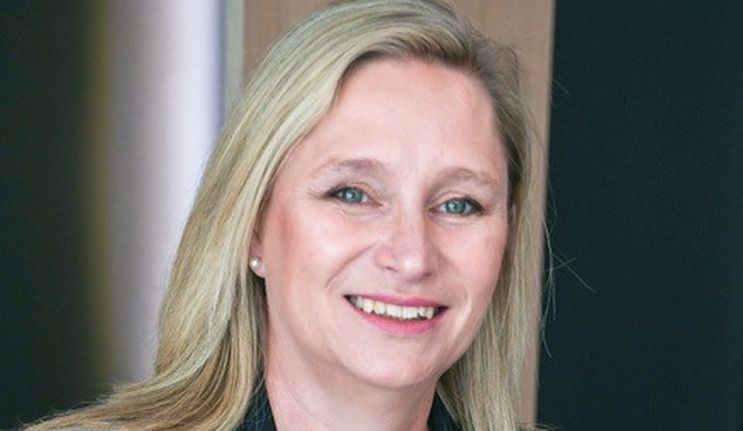
ALUMNI FOCUS
Natasha Copley – the more things change…
In a world that is changing at an ever-increasing rate, some things, according to alumna Natasha Copley (BA/DipEd 1999), remain the same – and some of them are what she gleaned from a Bachelor of Arts at Macquarie University. These skills have stood the test of time and are just as relevant today as they were when she undertook her degree.
Even before COVID-19 wrought massive changes in the world, significant shifts were already occurring. Natasha Copley, Director of Human Resources at DXC Technology, has been at the heart of the technology change and says, ‘Technology has become the glue that keeps us connected, but we can’t dismiss the core humanities skills of communication, collaboration, problem solving, innovation and creative thinking. When we look at our graduate intake, these are the sort of characteristics we look for.’
And it’s not surprising. It would be hard to teach – and even more difficult to keep up with –the massive changes that are occurring in technology, so focusing on what Natasha calls ‘really thoughtful inquiry’ makes sense. She explains, ‘Having a basic understanding of digital technologies is important, but focusing on and honing those listening and thinking skills is where the need will be in the future.’
Fundamental skills that Natasha acquired during her degree nearly twenty years ago. ‘I never would have guessed that synthesising large amounts of data, answering questions, which is in essence problem-solving, and bringing information together and then presenting it in a way that makes your point clearly and concisely, would still be so relevant.
‘The need for presentations, emails and reports is constant and I am able to produce them quickly because subjects that require a lot of reading – like English, History and Psychology – teach you how to pull information together in a way that people understand.’
Natasha’s role is all about people and working out where DXC is going as a company in terms of its people strategy. She says, ‘There’s a plethora of relevant information out there. My job is to use it to create a cohesive strategy and then make it relevant to the business. By creating a meaningful story and sharing it with the business, my colleagues understand not just what we are doing, but why, and are more supportive as a result.’
For those without strong technical skills or knowledge, Natasha makes the point that: ‘Relationship-building skills are key to working with those who have a better understanding of the technical side of things. It’s really about questioning and listening skills.’
So what advice would Natasha give students completing a Bachelor of Arts in an extremely competitive environment? ‘When you go for a role, you need to be the one who makes it clear how the subjects you’ve done relate to the selection criteria the employer has listed.
‘For me, I translated an organisational psychology unit into a critical skill when it came to human resources roles. Giving some thought to making the most of the subjects you have already done – or even better before choosing subjects – can be the difference in terms of making your resume count.’
It’s a tough environment out there in many ways, but it’s good to know that skills intrinsically learned as part of a Bachelor of Arts degree can have such a long-lasting and profound effect on graduates’ employability – and ability to stay employed in an ever-changing workplace.
Natasha will be one of our expert panelists at this year’s Trendsetter Panel Webinar: (Re) visioning Education for the future on Tuesday 20 October, 5.30pm. Save the date, invitations out soon.
Words: Megan English